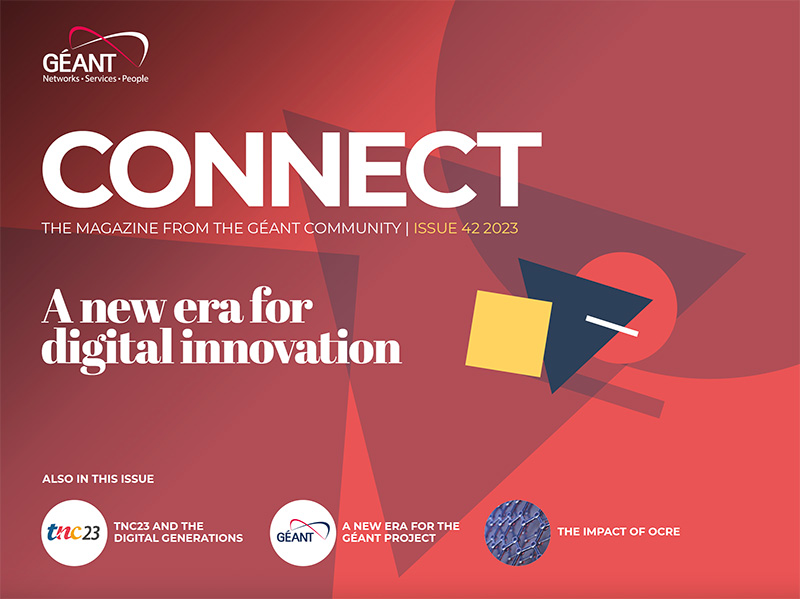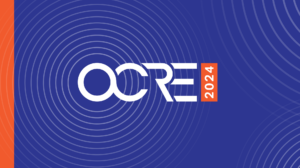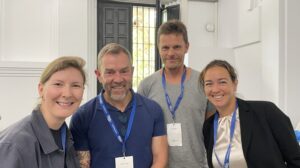The OCRE project, which came to a close in December 2022, made commercial cloud services available to accelerate research and education throughout 10,000 institutions across Europe
Driving innovation through research and driving research through innovation
The OCRE project was initiated to stimulate the use of commercial cloud and Earth Observation (EO) services by the European research community. According to Dave Heyns, OCRE Project Director, the adoption of such services was particularly low before the project commenced because researchers and research institutions struggled to find the proper service providers and reach legal and technical agreements with them.
“What we did was to aggregate community demand and requirements and applied these into a pan-European call for commercial service providers to respond to,” says Heyns. “These tenders provided the procurement-compliant framework agreements we needed with suitable suppliers so that institutions could more efficiently ‘shop’ from a list of services in the EOSC Marketplace to procure what they needed.”
This opened the way for researchers to procure services through ready-to-use contracts and via adoption vouchers made available in funding waves for both cloud and EO services. Usage was facilitated by NREN Cloud Service Delivery Managers at local National Research and Education Networks (NRENs). NRENs acted as intermediaries. Since the OCRE project ended on 31 December 2022, NRENs have taken over as the primary facilitator to access the services.
“One of the most satisfying observations I’ve seen in the OCRE project is how proactive the commercial companies have been in engaging with researchers,” he adds. “Going forward, it will be this kind of proactive approach taken by commercial vendors that will help us identify funding opportunities, alongside harnessing the capabilities of local NRENs.”
On a local level, Michel Wets, Head of Cloud Services at SURF, the Dutch NREN, believes that the role of the Cloud Service Delivery Manager is important, especially when it comes to raising awareness.
“For researchers, and educators, who are so used to working with a computer under their desk, there is a learning curve.”
According to Jakob Tendel, former head of stakeholder engagement for cloud services at DFN in Germany and now a co-Work Package Leader in the GÉANT GN5-1 project, usage of commercial services by public research institutions presents challenges unique to the R&E community.
“These challenges can be around procurement, compliance, and third-party data handling. The OCRE framework reduces many of these pain points and uncertainties. As it progresses, via the GÉANT project, we anticipate that it will continue to accelerate growth and adoption.”
Future impact
The OCRE project enabled more than 10,000 European institutions to easily access a host of relevant digital services through the OCRE Cloud Framework. The initiative provided many researchers access to on-demand high performance compute, data storage, machine learning platforms, simulation, and virtualisation tools for the first time with minimal bureaucracy. That is making the European research ecosystem more responsive, more agile, and more scalable.
The impact has been felt across 40 countries, with demand more than doubling in 2021 and even more in 2022. This trend looks likely to continue in 2023. From 2023, the GÉANT GN5-1 project will support the framework implementation and will execute a new public tender for a cloud framework to succeed the current one delivered by the OCRE project in 2020.
OCRE: Driving Innovation Through the Adoption of Commercial Cloud and EO Services
Digital Single Market strategy is one of the European Commission’s (EC) 10 political priorities, intending to remove virtual borders, boost digital connectivity, and make it easier for consumers to access cross-border online content. The Open Clouds for Research Environments (OCRE) project, funded by the EC and coordinated by GÉANT, is a practical example of how this can come about, and over 48 months has successfully made it easier for consumers, in this case researchers and research institutions, to access a wide range of powerful digital tools.
In CONNECT42, we highlight just three of the many projects across Europe that have benefited from using the OCRE framework to accelerate their research whilst benefiting from reduced costs and easier procurement procedures – letting researchers focus on their work.
- Real time diagnosis to tackle aortic disease – University of Galway
- Studying 2D materials – University of Bath
- Developing a new approach for the study of archaeological sites thanks to OCRE’s Earth Observation vouchers – CRS4 Research Centre, Sardinia
To find out more about these success stories and many others visit https://clouds.geant.org/ocre-success-stories/
 This article is featured on CONNECT42, the latest issue of the GÉANT CONNECT Magazine!
This article is featured on CONNECT42, the latest issue of the GÉANT CONNECT Magazine!
Read or download the full magazine here




